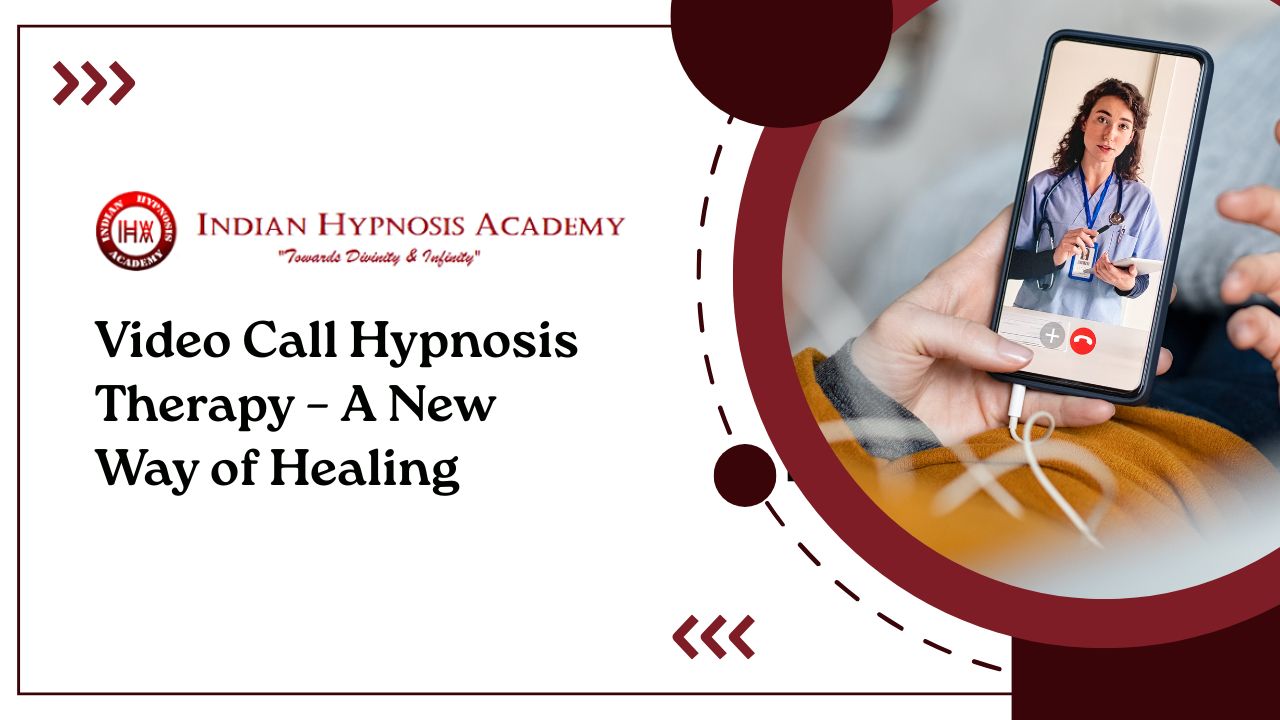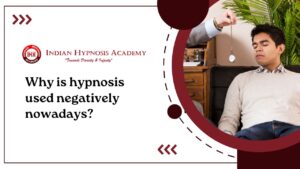Introduction to Video Call Hypnosis Therapy
In an age where technology connects us like never before, even the realm of therapy is evolving. Enter video call hypnosis therapy—a modern approach that brings healing directly to your home. Imagine sitting comfortably in your favorite chair, guided by a skilled hypnotherapist through a screen, all while addressing deep-seated issues and exploring the power of your subconscious mind. This innovative method combines convenience with effectiveness, making therapeutic support accessible to more people than ever before.
As we navigate our busy lives, finding time for self-care can be challenging. Video call hypnosis therapy offers flexibility without compromising quality. Whether you’re dealing with anxiety, stress, or simply seeking personal growth, this digital solution could be just what you need. Let’s delve into how this transformative practice works and why it might be the perfect fit for those searching for affordable hypnotherapy courses in India at reputable institutions like the Indian Hypnosis Academy (IHA).
How Does Video Call Hypnosis Therapy Work?
Video call hypnosis therapy leverages technology to create a healing environment from the comfort of your own home. The process begins with an initial consultation, where the hypnotherapist discusses your goals and concerns. This personal touch is essential for building trust.
Once you’re comfortable, the session typically starts with relaxation techniques to help clear your mind. Guided imagery and verbal cues are used to induce a trance-like state during which you’re more receptive to suggestions.
The therapist monitors your responses through video interaction, adjusting their approach based on visual feedback. This adaptability enhances effectiveness while maintaining a connection that’s crucial in any therapeutic setting.
Throughout the session, you remain fully aware and in control, allowing for an interactive experience tailored specifically to your needs. Afterward, follow-up sessions can reinforce positive changes and address any emerging issues effectively.
Benefits of Video Call Hypnosis Therapy
Video call hypnosis therapy offers remarkable convenience. Clients can connect from the comfort of their homes, eliminating travel stress and saving time.
Accessibility is another significant advantage. People in remote areas or those with mobility issues can easily access skilled hypnotherapists through online platforms.
The personalized experience enhances engagement during sessions. Hypnotherapists tailor approaches to individual needs while maintaining a close connection via video calls.
Privacy remains intact, as clients feel secure discussing sensitive topics without the worry of being seen entering a physical office. This discretion fosters a more open dialogue.
Additionally, affordability plays a role in this modern approach. Many practitioners offer competitive rates for virtual sessions compared to traditional face-to-face appointments.
Flexibility in scheduling allows clients to choose times that suit them best, making it easier to commit to their healing journey without disrupting everyday life.
What Types of Issues Can Be Treated with Video Call Hypnosis Therapy?
Video call hypnosis therapy offers a versatile approach to various mental and emotional challenges. It is effective in addressing anxiety and stress management, providing clients with relaxation techniques right from their homes.
Individuals struggling with phobias often find relief through guided sessions that help them confront fears in a safe environment.
Sleep disorders, such as insomnia, can also be treated effectively by promoting deeper relaxation and establishing healthier sleep patterns.
Additionally, video call hypnosis therapy supports those dealing with weight loss or smoking cessation goals by reinforcing positive behaviors and breaking old habits.
It serves as a valuable tool for enhancing overall well-being, making it an appealing option for many seeking personal growth and healing without the need for physical presence. The accessibility of this method expands its reach across India, allowing more individuals to benefit from professional guidance offered by qualified practitioners at the Indian Hypnosis Academy (IHA).
Success Stories and Testimonials
Success stories often illuminate the transformative power of video call hypnosis therapy. Many clients have shared how they overcame deep-seated fears and anxieties through online sessions.
One individual, struggling with public speaking anxiety, found freedom after just a few sessions. They reported feeling more confident and capable in front of an audience, which changed their career trajectory.
Another client battled insomnia for years but discovered restorative sleep after participating in targeted hypnosis sessions via video call. The calming techniques taught during these interactions helped create a peaceful nighttime routine.
Testimonials highlight that convenience plays a significant role too. People appreciate the ability to access expert guidance from home, making mental health support more accessible than ever before.
These experiences showcase not just healing but also empowerment through innovative therapeutic options available today.
Finding a Qualified Video Call Hypnotherapist
Finding a qualified video call hypnotherapist can feel overwhelming, but it doesn’t have to be. Start by researching professionals who are certified and trained in hypnosis. Look for credentials that indicate they have completed recognized programs.
Check platforms like the Indian Hypnosis Academy (IHA), which offers various affordable hypnotherapy courses in India. These programs provide a solid foundation for practitioners and reassure clients of their expertise.
Read reviews and testimonials from previous clients. This feedback often reveals the therapist’s approach and effectiveness. Don’t hesitate to reach out with questions about their methods or experience, especially regarding video sessions.
Consider scheduling an initial consultation to see if you feel comfortable with them. Building rapport is crucial when it comes to therapy—especially through a screen. Ensure your chosen hypnotherapist resonates with you on a personal level before committing long-term.
Things to Consider Before Trying Video Call Hypnosis Therapy
Before diving into video call hypnosis therapy, it’s essential to evaluate your comfort level with online interactions. Some individuals may find it challenging to connect through a screen.
Technical issues can also disrupt the session. Ensure you have a stable internet connection and a quiet space for uninterrupted communication.
Consider your goals for therapy. Clearly defining what you hope to achieve will help guide both you and the hypnotherapist during sessions.
Research is crucial; not all practitioners are created equal. Look for qualified professionals trained in reputable programs like the Indian Hypnosis Academy (IHA).
Be open-minded but cautious about expectations. While many experience positive results, individual experiences vary widely in this transformative process.
Conclusion: The Future of Healing?
As the world continues to evolve, so do our approaches to healing. Video call hypnosis therapy offers a modern and accessible way for individuals to explore their subconscious mind, address personal challenges, and foster positive changes in their lives. With the added flexibility of remote sessions, it removes barriers that traditional therapy may impose.
For those seeking affordable hypnotherapy courses in India, organizations like the Indian Hypnosis Academy (IHA) provide valuable resources and training opportunities. This accessibility is vital as more people recognize the benefits of hypnosis in addressing various issues ranging from anxiety to chronic pain management.
The success stories emerging from video call hypnosis therapy are encouraging. They highlight not just individual transformations but also a shift toward more inclusive mental health support systems.
As we embrace these innovations in therapeutic practices, it’s clear that video call hypnosis therapy is paving the way for future healing methods—bridging gaps between practitioners and clients while promoting holistic well-being across diverse populations. The journey into your subconscious can now happen right from the comfort of your home; perhaps this new era will redefine what it means to heal.




